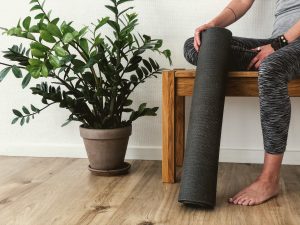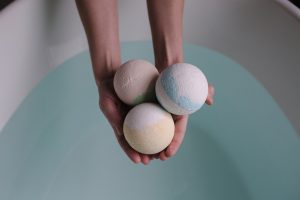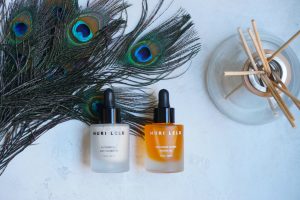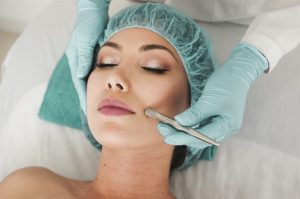Serum or Toner - Differences, Benefits, How to Choose
Serum vs. toner. These two names may seem quite confusing, if you’re not that into skincare products. The skincare industry is the fastest-growing, and it includes a broad range of products where toners and serums have long been very popular.
According to research conducted by SkinStore in 2021, toners and serums were among the trending skincare products in the US.
But do you really need any of those? Are both these products absolutely vital for your skin? And, what’s the difference between these two, after all?
I’ve prepared all the answers you need, so let’s dive in.
Table of Content
- What is a Toner?
- What Does a Serum Do?
- Differences Between a Serum and a Toner
- Does My Skin Need a Toner or a Serum?
- Top 6 Serums and Toners
- 1) For Sensitive Skin - Renee Rouleau Moisture Infusion Toner
- 2) For Acne-Prone Skin - La Roche-Posay Effaclar Clarifying Solution Acne Toner
- 3) For Oily Skin - Ole Henriksen Balancing Force Oil Control Toner
- 4) For Oily Skin - The Ordinary Niacinamide 10% + Zinc 1%
- 5) For Wrinkles and Fine Lines - Revitalift Derm Intensives 1.5% Pure Hyaluronic Acid Face Serum
- 6) For Acne-Prone Skin - Clinique Acne Solutions Acne + Line Correcting Serum
- Wrapping Up
What is a Toner?
Toner is a beauty product that hydrates your skin and balances its pH level. In a typical skincare routine, it comes right after the cleanser alongside other moisturizers.
Initially, a toner was created as compensation for the stripping effect of soap to rebalance the skin.
Oftentimes, marketers introduce face toners to the consumers as cleansers or makeup removers which they are not. Toners are water-based products that deliver active ingredients to the skin that are missing in other skincare products.
According to the skincare guru Hyram, since toner’s primary purpose is hydration, it’s not necessary if you’re using moisturizing creams. However, this doesn’t refer to treatment-based toners targeting and healing certain skin issues.
So, if you use toner just for hydration, you can skip that step and use a more effective moisturizer instead.
4 benefits of using toners
Here’s how this product can help your skin.
- Provides a balanced pH level. Toners balance out your skin after using harsh cleansers. That’s the main reason why toners are recommended to be applied after cleansing your skin.
- Light texture for oily skin. Facial toners work best with oily skin since people with this skin type can’t use heavy products and moisturizers. At the same time, a toner is a light water-based product that doesn’t add up to the oiliness of the skin and provides a thin coverage.
- Hydrates and boosts your skin. Skin toners have a moisturizing effect providing a boost of hydration after applying various products to your skin, especially foam cleansers. Their thin consistency rebalances and freshens up your skin.
- Helps with acne-prone skin. Special treatment-based toners help with acne, especially if they contain important active ingredients such as glycolic acid and niacinamide. The special formula controls oil production and helps to heal the skin faster.
Despite the above-mentioned benefits, toners, just like all types of skincare products, sometimes can include ingredients that may be harsh on your skin. Hence, I’d highly recommend avoiding toners that contain the following components:
- Alcohols
- High concentrations of salicylic acid
- High concentrations of benzoyl peroxide
- Synthetic fragrances
- Synthetic skin conditioners
Moving on to serums.
What Does a Serum Do?
A serum is a beauty product that hydrates and delivers active ingredients to your skin. Its tiny molecules penetrate deep into the skin and deliver a wide range of active components, such as vitamins, chemical exfoliants, and herbal extracts.
The serum has a slightly thicker consistency compared to a toner, but it’s lighter than a moisturizer. It’s a liquid product that needs to be applied right after the cleanser but before a moisturizer since it helps to lock in the moisture.
Serums are usually applied using your fingertips to massage the products into your skin.
Regular serums are designed to hydrate your skin. But is it actually necessary? If a serum doesn’t contain any active ingredients and is not used for treating certain skin issues, then it’s not necessary.
7 benefits of using serums
Serums have a number of benefits for your skin. I’ve narrowed down the following seven:
- Absorbs quickly. The light consistency of the product immediately penetrates your skin. It’s perfect, especially when you need to do your makeup in a rush and can’t wait too long for it to dry.
- Has a lighter texture than a moisturizer. Unlike other treatments for oily skin, serums do not feel heavy on your it. Its liquidy consistency has a light texture that covers your face with a thin layer and absorbs immediately, leaving a soothing effect.
- Has a nourishing effect. Serums help reduce skin inflammation and provide a smooth texture. It nourishes your skin and soothes sensitive patches, especially on oily skin.
- Hydrates your skin. One of the principal elements of serum is hyaluronic acid which hydrates the skin and locks in the moisture.
- Protects the skin from UV and other damages. Serums containing Vitamin E, C, green tea, and similar ingredients protect the skin from UV rays and pollution and prevent premature aging.
- Smoothes lines and wrinkles. If a serum contains retinol and its analogs, it can help reduce wrinkles and fine lines over time.
- Results are visible faster. Due to the high concentration of active ingredients, serums provide more visible results on your skin.
To make the most of the benefits serums offer, I’ve narrowed down a list of ingredients that should be absent from a good product. So, avoid serums that contain the following components:
- Polyethylene glycol
- Alcohol
- Hydroquinone
- Fragrances
- Parabens
- Synthetic colors
Now it’s time to compare both products.
Differences Between a Serum and a Toner
Although both have some similarities, serums and toners are two completely different products. Each of them has a certain role in the beauty procedure and is applied at different stages of a skincare routine.
Here’s a handy graph to help you compare serum vs. toner:
Does My Skin Need a Toner or a Serum?
Various skin types require different skincare regimens. Beauty products are uniquely designed to match each type of skin. The same goes for toners and serums. So, before you go to buy an overhyped serum, read this section to educate yourself.
Normal skin
If you have normal skin, then you’re on the safe side and are completely free to experiment with skincare products to see what works best for you. Both products can be great for boosting your skin and providing additional moisture and glow. You can try both to see which one feels better on your skin.
Oily skin
Toners are a great product, especially if you have super oily skin. Compared with other beauty products, toners have a lighter texture and help to balance your skin.
Serums can also be beneficial here. People with oily skin may struggle to find the best moisturizers since they often make the skin oilier. However, a serum is an excellent alternative to moisturizers for oily skin due to its lighter texture.
When choosing a serum for oily skin, look for the ones that include the following ingredients: niacinamide, zinc, enantia chlorantha, and lactic acid. Serums with these components help absorb the oil and mattify your face.
Dry skin
For dry skin, both serums and toners can work for hydration. For facial toners, make sure to avoid products that contain alcohol since it will dry out your skin even more. Instead, look for toners with hyaluronic acid, glycerin, aloe and rosewater - they will balance out your skin and provide moisture.
As for serums, dry skin can highly benefit from hydrating products followed by a good moisturizer. Make sure to use the ones with Vitamin E, glycerin, ceramides, hyaluronic acid, and essential fatty acids.
Combination skin
It may be slightly complicated to find the best product for combination skin. With this skin type, you may have, for instance, an oily T zone with dry patches on your cheeks. In this case, a toner can be the perfect option. It helps to dissolve the oily parts of your skin and, in the meantime, hydrates dry areas.
If you’re looking for serums for combination skin, you need to use two types on different areas of your face. On dry patches, apply a hydrating serum, while on oilier parts, apply serums containing niacinamide.
Top 6 Serums and Toners
To help you out with your choice, I’ll list some of the best toners and serums you can find in drugstores or online.
Please note that it’s not mandatory to use only these products since these are just some examples. You can pick a product that suits your needs best. I’m listing the options below only because they have delivered impressive results over the years and are among the favorites of a wide range of users.
1) For Sensitive Skin - Renee Rouleau Moisture Infusion Toner
If you have irritated, dry skin, you can try this product to soothe it. This toner has the following main active ingredients: niacinamide and Vitamin C. With such a combination, this toner reduces redness, calms your skin, and hydrates it.
Even celebrities swear by this product.
2) For Acne-Prone Skin - La Roche-Posay Effaclar Clarifying Solution Acne Toner
This product is probably the best serum for acne-prone skin. It has two active ingredients: glycolic acid and salicylic acid.
For acne-prone skin, you need a toner that will reduce excess oil and unclog your pores without overdrying it.
This product uses salicylic acid to tackle the oil while glycolic acid exfoliates and cleans your face. This combination of components treats breakouts and helps with acne.
3) For Oily Skin - Ole Henriksen Balancing Force Oil Control Toner
If you’re looking for a toner that will help you control oil build-up on your skin, this product can be your savior. It contains the following active ingredients: AHAs/BHA and witch hazel.
Its formula exfoliates the skin and cleans out your pores, and dissolves extra oil. It also mattifies the skin, getting rid of its excess shine.
4) For Oily Skin - The Ordinary Niacinamide 10% + Zinc 1%
If you’re looking to get rid of that shine caused by oily skin and reduce acne, this can be the perfect serum for you.
It has two active ingredients: Niacinamide and Zinc. This formula helps unclog pores, smooths your skin, and provides a matte finish.
5) For Wrinkles and Fine Lines - Revitalift Derm Intensives 1.5% Pure Hyaluronic Acid Face Serum
If you’re looking to boost your skin and smooth out your wrinkles, then this is a good option.
With hyaluronic acid as its active ingredient, this product will hydrate your skin and provide a younger look.
6) For Acne-Prone Skin - Clinique Acne Solutions Acne + Line Correcting Serum
This product works great for smoothing your skin and getting rid of zits. Its active ingredient is salicylic acid which helps reduce acne and provides a fresh glow.
And that’s a wrap! I hope my recommendations will help you out with your skincare.
Wrapping Up
Let me sum this up for you.
Toners and serums are completely different beauty products. You can use both products simultaneously for your skincare routine or omit one of them, depending on what your skin requires.
The common effect both products have on your skin is hydration. Both products contain a plethora of active ingredients that can have diverse benefits for your skin.
As for visual appearance, texture, packaging, and application, toners and serums are totally different.
So, if you’re looking for extra hydration for your skin, both products will do their job. But if you need to treat certain skin issues, look for serums with special formulas made to address those issues.
Was this article helpful? Follow my blog to find more exciting articles on skincare and beauty products!









